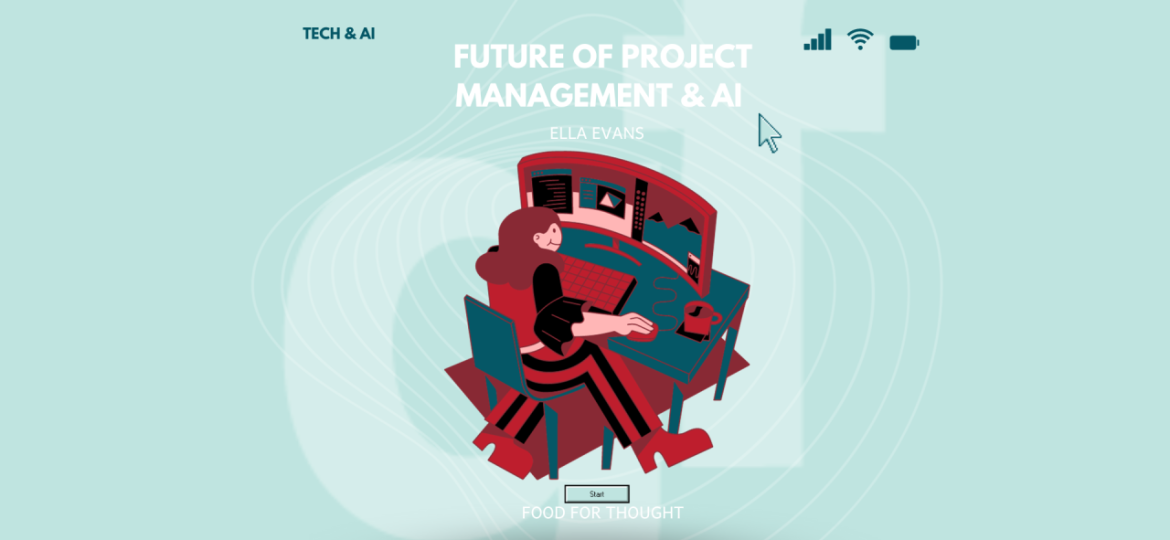
The discussion around the future of any career often cater to a fear of the unknown, but if we know anything as of right now AI will unequivocally change the world. Even today with the integration of AI into Linkedin, or Grammarly, or ChatGPT we can see how the world is shifting from letter writing to typewriters to computers and now to AI. So what does that mean for us? Particularly when analysing project management and construction industries we can start to fully understand just how limitless the possibilities are if AI and programs are used correctly and how disastrous our ignorance of it could equally be.
The question pertinent to this is of how AI and technology development will affect the industry. In the next 20 years, just as in the last 20 years, we will see unprecedented growth in the development of technology and as such we must be able to take on the changes that come with this.
Project Managers should empathetically forecast the future and analyse how AI and programs can serve PMs and develop the technology. The future of project management requires only a quick look at our past to investigate just how people will handle the development of technology. It is likely that the current Knowledge, Skills, and Attributes (KSAs) that currently pertain to the industry will no longer be enough to satisfy not just the client, but employees, graduates, and the business model itself. Integrating AI into the workplace, intuitive program development and the work-from-home or remote work models will influence how PMs function. As project management is an inherently future-planning-based industry it is important to be cognisant of the opportunities of an ever-changing business landscape.
The fear of technological advancement should be reviewed through the lens of the person and not through the lens of the technology itself. This is only to say that the issues that are often brought up about an AI takeover are often sought out of fear, without first investigating what the career lacks, which would make an AI takeover possible. It is likely that management will no longer just have to be emotionally literate with clients but also with the staff. Job insecurity is not a new concept and has been witnessed through the last several technological revolutions and the AI revolution will likely be no different. The fear of the future in the face of progress is an innate principle of human behaviour and seems to be a common theme when discussing the imminent integration of AI into the project management field.
The suggestion that people could be entirely replaced with technology ignores the humanistic requirements of any job and as such should be noted with a grain of salt. Perhaps it would be more sensible to consider the way in which PMs are dealing with work that could be more accurately completed through the removal of human error. Literature as late as 2019 points to inefficiencies of the work such as Microsoft Project using Gantt charts being a hold-on from a previous time, suggesting that programs that are already being created through technology could be further generated by AI, perhaps even through company databases.
It should be noted that these ‘inefficiencies’ are often also linked back to general project sustainability. That the reduction of man hours and an increase in the use of programs will increase not only project efficiency but also, if implemented correctly, workplace efficiency. The suggestion is that sustainability is poorly addressed in documents such as the PMBOK and AI could in fact be the resolution of many of the issues that PMs face. Perhaps the next 20 years will address current inefficiencies in the industry.
Striking a balance between technology and AI integration will require unprecedented flexibility. The ways in which people communicate will vastly change and companies will be required to assess their employees’ trust more regularly. The issues of the industry’s future are going to be on all fronts and will only be addressed through pre-emptive strategies.
Gripfast’s goal is to supply exceptional project management but also stay ahead of the game in order to do this. We hope to embrace the future of AI as it becomes more prevalent in the future, however, we cannot forget how invaluable it is to have a great project manager to guide projects.
Ella Evans

